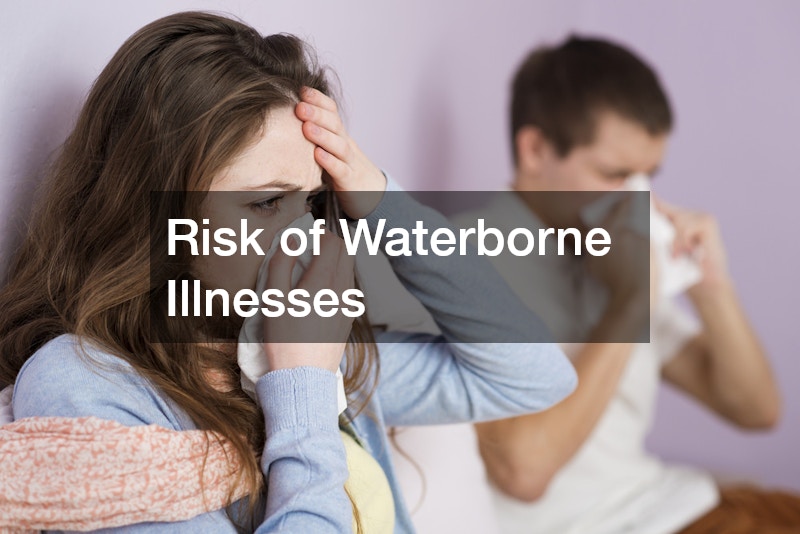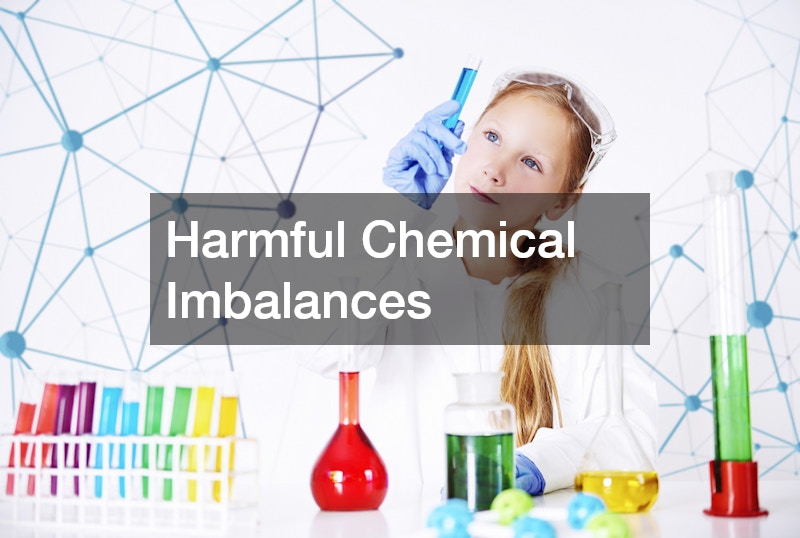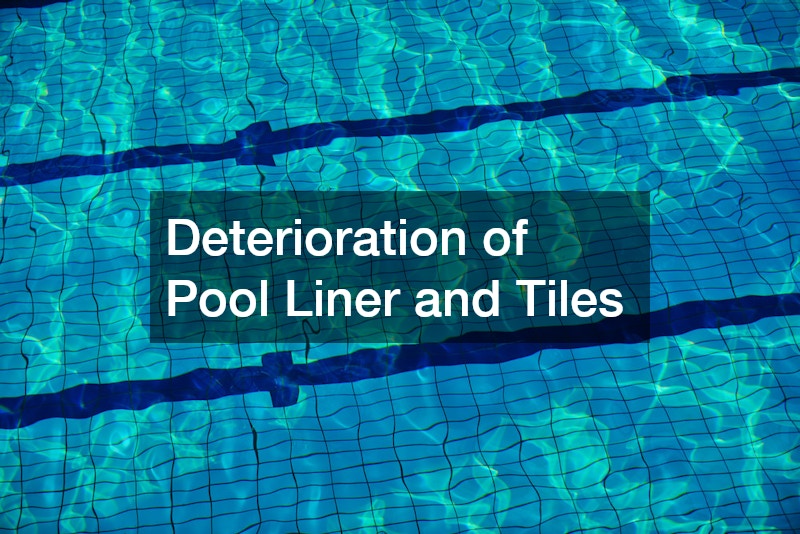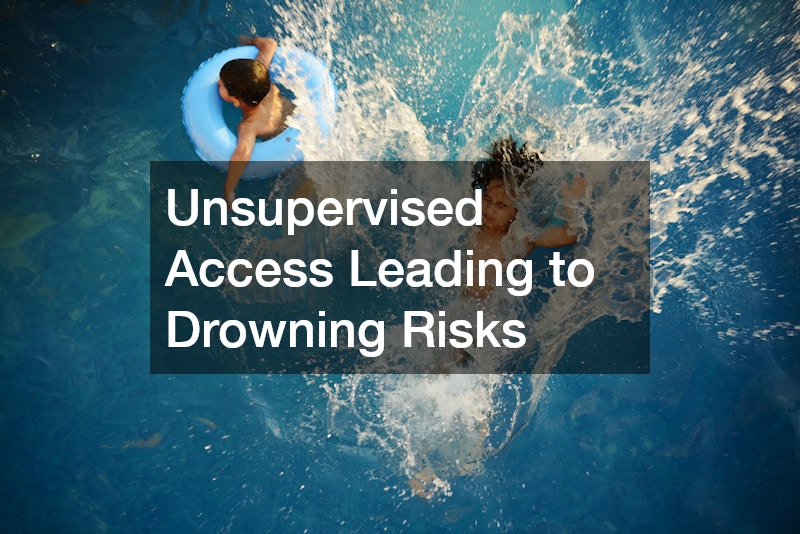Swimming pools offer a source of relaxation, recreation, and family bonding. They are often the center of enjoyment in many households, where friends and family gather to cool off during the summer or simply enjoy a peaceful day outdoors. However, while pools can be a valuable addition to any home, they require consistent and thorough maintenance to remain safe and functional. Failing to properly care for a pool can lead to a range of issues, from health hazards to expensive repairs. In short, the dangers of pools that aren’t maintained properly cannot be understated. In this article, we will explore the 10 most significant dangers of pools that aren’t properly maintained.
1. Risk of Waterborne Illnesses

One of the primary dangers of pools that aren’t maintained properly is the increased risk of waterborne illnesses. These illnesses are caused by harmful bacteria, viruses, and parasites that thrive in contaminated water. Without proper sanitation, pools become the perfect environment for pathogens like E. coli, Cryptosporidium, and Giardia. These organisms can cause a variety of health issues, ranging from mild skin irritations and ear infections to more severe gastrointestinal illnesses.
One of the most common causes of waterborne illnesses is the failure to maintain the proper chlorine levels in the pool. Chlorine is essential for killing harmful bacteria and ensuring that the water remains safe for swimmers. However, chlorine levels can fluctuate due to factors like sunlight, debris, and frequent pool use. If chlorine levels drop too low, harmful microorganisms can quickly multiply, putting swimmers at risk.
Another concern is the potential for the pool’s plumbing system to malfunction, leading to poor water circulation and an increased risk of contamination. Without proper water flow, harmful bacteria can accumulate in stagnant areas of the pool. To prevent these issues, regular inspections by a plumbing company are essential to ensure that the pool’s filtration and circulation systems are functioning correctly. By keeping the water clean and free from harmful pathogens, pool owners can avoid the serious health risks associated with waterborne illnesses.
2. Increased Algae Growth and Slippery Surfaces
One of the dangers of pools that can arise from improper pool maintenance is algae growth. Algae are microscopic plants that thrive in warm, untreated water, and once they begin to grow, they can quickly spread across the pool’s surfaces. Algae growth not only turns the water an unappealing green color, but it also creates hazardous slippery surfaces around the pool. This increases the likelihood of slips, trips, and falls, which can lead to serious injuries, particularly for children and the elderly.
The presence of algae is often a sign that the pool’s chemical balance is off, particularly the chlorine levels. Algae can grow when there is insufficient chlorine or when the pool water is left stagnant for too long without proper circulation. Once algae have taken hold, they can be difficult to remove, often requiring shock treatments and thorough scrubbing of pool surfaces.
In addition to the obvious aesthetic concerns, algae can clog filters, reducing the effectiveness of the pool’s filtration system. This can lead to further maintenance problems and an increased risk of waterborne illnesses. A residential pool contractor can assist with regular cleaning and chemical balancing to keep algae growth under control. Routine cleaning, vacuuming, and ensuring proper chemical levels can prevent slippery surfaces and maintain the pool’s safety and appearance.
3. Corrosion of Pool Equipment and Surfaces
Improperly maintained pools can lead to the corrosion of essential pool equipment and surfaces, which is another of the dangers of pools that aren’t maintained. Corrosion occurs when pool water is too acidic or too alkaline, and the resulting imbalance can cause metal parts, such as ladders, handrails, and even pool pumps, to rust and degrade over time. Not only does this reduce the lifespan of the equipment, but it also creates safety hazards for swimmers.
For example, rusted pool ladders can become unstable, leading to potential slips or falls. Likewise, corrosion of the pool pump or heating system can lead to costly repairs or replacements. Additionally, when the pool’s water chemistry is not properly balanced, the surfaces of the pool itself—such as tiles, grout, or plaster—can begin to deteriorate, resulting in cracks, chips, or other damage that can compromise the integrity of the pool structure.
Corrosion also extends beyond the pool’s immediate equipment. For instance, the outdoor furniture surrounding the pool area can be affected by exposure to harsh chemical imbalances in the water, further leading to rust and deterioration. Regular water testing and maintenance are crucial to prevent these issues. By maintaining the correct pH balance and ensuring that all pool equipment is properly maintained, homeowners can avoid the costly consequences of corrosion.
4. Harmful Chemical Imbalances

One of the most critical aspects of pool maintenance is ensuring the proper balance of chemicals in the water. A pool’s chemical balance involves more than just chlorine; it also includes pH levels, alkalinity, calcium hardness, and other important factors. When these levels are not properly monitored and adjusted, swimmers can be exposed to a range of health risks, and the pool’s equipment and surfaces can suffer from premature wear and damage.
High chlorine levels, for instance, can cause eye irritation, skin rashes, and respiratory problems for swimmers. On the other hand, if the chlorine level is too low, harmful bacteria and algae can begin to grow, turning the pool into an unsafe environment. Maintaining the correct pH level is also crucial, as overly acidic or alkaline water can cause discomfort for swimmers and lead to the deterioration of pool equipment.
Another chemical that is important for pool maintenance is calcium hardness, which affects the pool’s water softness. If calcium levels are too low, the water can become corrosive and damage the pool’s plaster or tile surfaces. Conversely, if calcium levels are too high, the water can become cloudy and cause scale buildup on the pool’s equipment.
A local pool contractor can assist with regular chemical testing and adjustments to ensure that the pool’s water is safe and properly balanced. Chemical maintenance is an ongoing process that requires attention throughout the swimming season. By staying on top of these adjustments, homeowners can avoid the dangers of pools that have harmful chemical imbalances.
5. Greater Chance of Pool Leaks and Structural Damage
One of the more costly dangers of pools that aren’t maintained properly is the increased risk of leaks and structural damage. Even small leaks, if left unchecked, can lead to significant water loss and structural issues over time. Pool leaks can occur for several reasons, including cracks in the pool’s shell, damaged seals around lights or plumbing fixtures, or wear and tear on the pool’s lining.
If water leaks from the pool and goes undetected, it can lead to erosion of the ground beneath the pool, which can cause the pool to shift or crack. In extreme cases, this can result in significant structural damage that requires costly repairs or even full pool replacement. Additionally, leaking water can seep into surrounding areas, such as patios or walkways, leading to damage to the surrounding landscaping and hardscaping.
Routine inspections for leaks and cracks are essential in preventing these issues. Homeowners should be on the lookout for signs of water loss, such as a sudden drop in water levels or the presence of damp areas around the pool. Working with professionals who specialize in pool installations can help identify and repair leaks before they escalate into larger problems. By addressing leaks early, homeowners can avoid more severe structural damage and costly repairs.
6. Debris Buildup Leading to Blocked Filters
One of the most overlooked dangers of pools that aren’t maintained is the buildup of debris, such as leaves, dirt, and insects, which can clog filters and reduce water circulation. A clogged filter not only makes the pool water appear dirty and uninviting but also allows harmful bacteria to thrive, creating an unsafe environment for swimmers.
When the pool’s filter is blocked, it puts additional strain on the pool pump and filtration system. This can lead to equipment malfunctions and require costly repairs or replacements. Regular skimming of the pool’s surface and cleaning the filtration system are necessary to prevent debris from accumulating and blocking the filters.
In addition to regular cleaning, it’s essential to have the pool’s filtration system inspected and serviced by pool contractors to ensure that it’s functioning properly. If debris is allowed to build up for too long, it can cause permanent damage to the pool’s equipment and lead to more significant maintenance problems down the line.
7. Deterioration of Pool Liner and Tiles

The pool’s liner and tiles are exposed to a range of elements that can cause deterioration over time. Sunlight, fluctuating temperatures, and chemical imbalances can all contribute to the wear and tear of these surfaces. If the pool’s liner becomes cracked or worn, it can lead to leaks and water loss. Similarly, broken or loose tiles can create sharp edges, which can pose a safety hazard to swimmers.
Deteriorating liners and tiles not only reduce the aesthetic appeal of the pool but also compromise its functionality. If left unaddressed, these issues can lead to more significant structural problems and costly repairs. Routine inspections and timely repairs are essential to maintaining the pool’s surfaces.
A local pool service provider can assist with pool parts, routine inspections, and repairs to ensure that the pool’s liner and tiles remain in good condition. By addressing these issues early, homeowners can avoid more extensive damage and ensure that their pool remains safe and enjoyable.
8. Electrical Hazards from Damaged Pool Lights and Equipment
Another significant danger of improperly maintained pools is the potential for electrical hazards, particularly if the pool’s lighting or equipment is damaged. Pool lights and other electrical components are submerged in water, and if they are not properly sealed or maintained, they can pose a serious risk of electrical shock. This can be especially dangerous for swimmers, as water is an excellent conductor of electricity.
Pool equipment, such as pumps, heaters, and filters, can also present electrical hazards if not properly maintained. Damaged wiring or malfunctioning equipment can increase the risk of fires or electrical shock. To mitigate these risks, it’s essential to have regular inspections of all electrical components by a qualified pool service provider.
Ensuring that all pool equipment is properly grounded and that any damaged components are repaired or replaced promptly is crucial for preventing electrical accidents. By working with professionals who specialize in pool repairs, homeowners can ensure that their pool’s electrical systems are safe and up to code. Don’t forget about the value of pool cages.
9. Unclear Water Creating Visibility Hazards
Maintaining clear, clean water is essential for pool safety. When a pool’s water is cloudy or murky, it becomes difficult to see the bottom, which can increase the risk of accidents, such as slips, falls, or even drowning. Poor visibility also makes it harder for swimmers to spot hazards, such as broken glass or debris at the bottom of the pool.
Cloudy water is often caused by an imbalance of chemicals, poor filtration, or the presence of algae and debris. Regular cleaning, chemical testing, and water circulation are essential to maintain clear water. A pool cleaning service or reverse osmosis pool service can help ensure that the water remains crystal clear and safe for swimming.
10. Unsupervised Access Leading to Drowning Risks

One of the most serious dangers of pools that aren’t maintained properly is the risk of unsupervised access, particularly for young children and pets. Pools that lack proper safety features, such as fences, gates, and pool covers, can become hazardous if left unattended. Drowning is one of the leading causes of death for young children, and unsupervised pools are a significant factor in these tragedies. Proper pool maintenance includes working with residential fencing services to ensure that all safety barriers are in place and functioning correctly. Pool covers should be securely fastened when the pool is not in use, and gates should be equipped with self-latching locks to prevent unauthorized access.
Maintaining a pool requires consistent effort and attention, but the benefits of proper upkeep far outweigh the risks and dangers of pools that aren’t maintained. From preventing waterborne illnesses and electrical hazards to avoiding costly repairs and structural damage, regular pool maintenance is essential for ensuring the safety and functionality of your pool. By working with professionals, such as plumbing companies, residential pool contractors, and local pool service providers, homeowners can keep their pools in top condition and enjoy a safe and pleasant swimming environment.